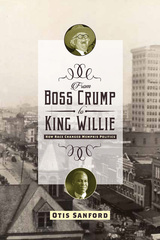
Paul explores both how Ives positioned his music amid changing philosophical and aesthetic currents and how others interpreted his contributions to American music. Although Ives's initial efforts to find a public in the early twenties attracted a few devotees, the resurgence of interest in the American literary past during the thirties made a concert staple of his "Concord" Sonata, a work dedicated to nineteenth-century transcendentalist writers. Paul shows how Ives was subsequently deployed as an icon of American freedom during the early Cold War period and how he came to be instigated at the head of a line of "American maverick" composers. Paul also examines why a recent cadre of scholars has beset the composer with Gilded Age social anxieties.
By embedding Ives' reception within the changing developments of a wide range of fields including intellectual history, American studies, literature, musicology, and American politics and society in general, Charles Ives in the Mirror: American Histories of an Iconic Composer greatly advances our understanding of Ives and his influence on nearly a century of American culture.


From Boss Crump to King Willie offers an in-depth look at the vital role that race played in the political evolution of Memphis, from the rise of longtime political boss Edward Hull Crump to the election of Dr. Willie Herenton as the city’s first black mayor. Filled with vivid details on the workings of municipal politics, this accessible account by veteran journalist Otis Sanford explores the nearly century-long struggle by African Americans in Memphis to secure recognition from local leaders and gain a viable voice in the city’s affairs.
Sanford explains how, in 1909, Crump won his first election as mayor without black support but then immediately sought to woo and keep the black vote in order to maintain his political machine for the next two generations. The African American community overwhelmingly supported the Crump organization because he at least listened and responded to some of
their concerns, while other white leaders completely ignored them. The book probes Crump’s hot-and-cold relationship with local newspaper editors, some of whom castigated his machine politics, and examines the press’s influence on the political and civic life of the city. It also shows how, amid longstanding racism and poverty in Memphis, the black community nevertheless produced many prominent business, religious, and political leaders, most of whom had an amicable relationship with “Boss” Crump.
The book goes on to explore the political vacuum that ensued after Crump’s death in 1954, and the factors that led to African Americans becoming the majority voting population in the city following Dr. Martin Luther King Jr.’s assassination in 1968. Through the civil rights movement and beyond, black Memphians kept up their fight for recognition and inclusion.
That fight culminated in the election of Dr. Herenton, a well-educated native son who proved to be the right man at the right time to make racial and political history in the city. Additionally, the book compares the racial climate in Memphis with that in other southern cities during the height of the civil rights movement.
OTIS SANFORD holds the Hardin Chair of Excellence in Economic/Managerial Journalism at the University of Memphis. He also serves as the political commentator for WREG-TV in Memphis. A former managing editor and current political columnist at the Memphis Commercial Appeal, he also worked for the Jackson (Miss.) Clarion-Ledger, the Pittsburgh Press, and the Detroit Free Press. He was inducted into the Tennessee Journalism Hall of Fame in 2014.

From Boss Crump to King Willie offers an in-depth look at the vital role that race played in the political evolution of Memphis, from the rise of longtime political boss Edward Hull Crump to the election of Dr. Willie Herenton as the city’s first black mayor. Filled with vivid details on the workings of municipal politics, this accessible account by veteran journalist Otis Sanford explores the nearly century-long struggle by African Americans in Memphis to secure recognition from local leaders and gain a viable voice in the city’s affairs.
Sanford explains how, in 1909, Crump won his first election as mayor without black support but then immediately sought to woo and keep the black vote in order to maintain his political machine for the next two generations. The African American community overwhelmingly supported the Crump organization because he at least listened and responded to some oftheir concerns, while other white leaders completely ignored them. The book probes Crump’s hot-and-cold relationship with local newspaper editors, some of whom castigated his machine politics, and examines the press’s influence on the political and civic life of the city. It also shows how, amid longstanding racism and poverty in Memphis, the black community nevertheless produced many prominent business, religious, and political leaders, most of whom had an amicable relationship with “Boss” Crump.
The book goes on to explore the political vacuum that ensued after Crump’s death in 1954, and the factors that led to African Americans becoming the majority voting population in the city following Dr. Martin Luther King Jr.’s assassination in 1968. Through the civil rights movement and beyond, black Memphians kept up their fight for recognition and inclusion. That fight culminated in the election of Dr. Herenton, a well-educated native son who proved to be the right man at the right time to make racial and political history in the city. Additionally, the book compares the racial climate in Memphis with that in other southern cities during
the height of the civil rights movement.

READERS
Browse our collection.
PUBLISHERS
See BiblioVault's publisher services.
STUDENT SERVICES
Files for college accessibility offices.
UChicago Accessibility Resources
home | accessibility | search | about | contact us
BiblioVault ® 2001 - 2024
The University of Chicago Press









